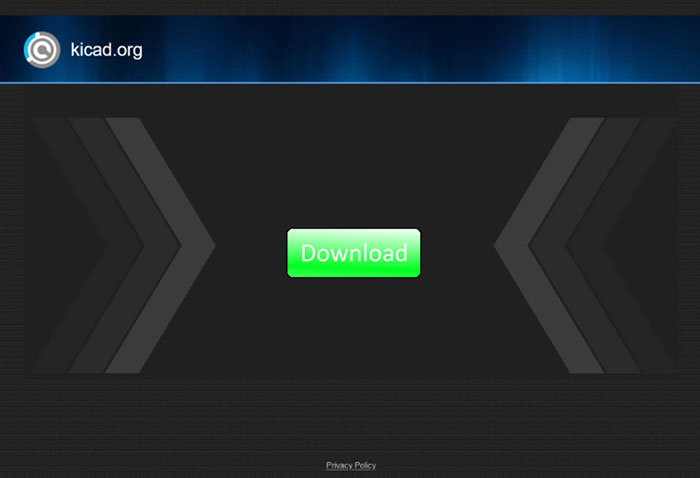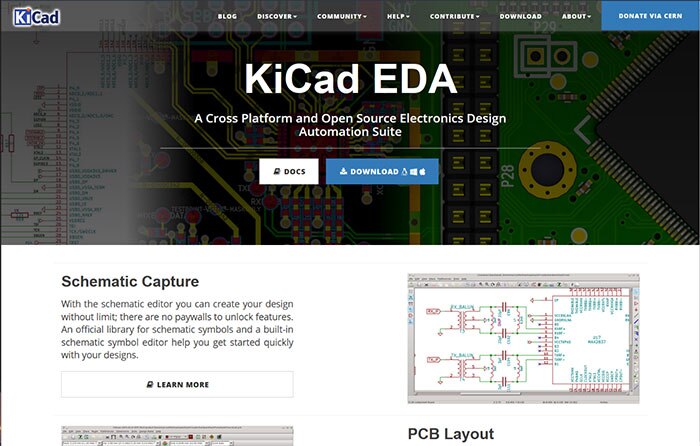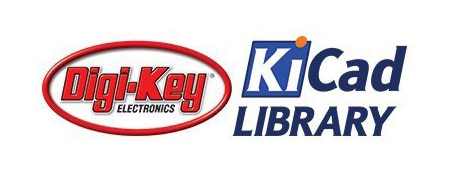The Story of KiCad.org
Today we are celebrating the new home for the KiCad project on KiCad.org. KiCad is a project we love and support at DigiKey, and we are proud to have helped the project on this journey. Here's a little story of an engineer and his friends trying to download KiCad and how this came about.
A long time ago in a Northwestern Minnesota warehouse far, far away, a few DigiKey employees were interested in building some boards. The year was 2016. Internally, Eagle experience was expansive; Orcad was as well. There was even a splash of Altium; but like any complex organization, not everyone had access to every license, which made collaborating hard.
Many of us were also consumers of a spunky little electronics-themed podcast called The Amp Hour on which cohost Chris Gammell often waxed poetic to Dave Jones about this lovely program called “KiCad”. Only a year earlier, KiCad 4.0 had been released with the help of an infusion of developer interest and some key new features built by CERN employees. The KiCad EDA software had started to gain steam and had demonstrated that there really was some potential to this PCB package and the community around it, which included Chris's own kicad.info forum. Through the podcast, the unwitting host was a little birdie whispering in our ears, espousing the world of open source. Several of us decided it was time to check out the open source wonder project named KiCad.
Where else does a person go to find such things, but through a handy little friend named Google. A quick "kicad" query away, and the #1 URL returned was kicad.org. Well that makes sense; let’s click there. Hey look, a big download button (Figure 1) - but wait - something does not look right…
 Figure 1: Artist’s rendition of a squatter page. (Image source: archive.org)
Figure 1: Artist’s rendition of a squatter page. (Image source: archive.org)
There's no information about the project. Ummm. . . this definitely isn't a project page. . . back to Google. Did I click the right link? After closer inspection, there is another viable result further down (in the #3 slot to be exact) so I go ahead and choose the kicad-pcb.org link, where I see something that looks much more reasonable (Figure 2).
 Figure 2: A screenshot of the 2016 kicad.org homepage via archive.org. (Image source: archive.org)
Figure 2: A screenshot of the 2016 kicad.org homepage via archive.org. (Image source: archive.org)
So, what's the deal? Well, the big green download button from the 2016 kicad.org Google result (Figure 1) was likely hosting malware/adware for an opportunistic domain squatter who registered it in 2006. In talking with my coworkers, I was not the only one who ran into the issue. If we had this issue, we were sure countless other people were probably getting bit by the same malware miscreant, but what could we do? It turns out that KiCad was useful enough to us that supporting it like any good corporate citizen made sense. So, we talked to DigiKey's leadership about the situation and we put together an anonymous bid to acquire the kicad.org domain. Shortly after, some people over on the KiCad Developers Mailing List noticed the domain had changed hands and the initial comments got a bit spicy. However, Wayne Stambaugh, the project leader, recognized the good faith gesture and through mutual cooperation, we were able to set up the kicad.org domain redirect to kicad-pcb.org.
Fast forward a few years; DigiKey has continued to benefit from the software, and we've maintained our support for the project. We helped with KiCon19; partnered with Shawn Hymel to put together some tutorial videos for KiCad; released the DigiKey KiCad Library; and donated to the project via CERN. In the same time period 5.0 was released, and now, with 6.0 nearing, KiCad has progressed to become quite a formidable tool in a professional engineer's toolbox. With the KiCad Project's entry into the Linux Foundation, Wayne reached out to talk about making kicad.org the permanent home for the KiCad project on the web. That made sense to us and Wayne made the announcement on October 29, 2020. We think it is fitting to congratulate the KiCad project and the developers for all their accomplishments, and being a shining example of open source success. Welcome home to kicad.org.

Have questions or comments? Continue the conversation on TechForum, DigiKey's online community and technical resource.
Visit TechForum










